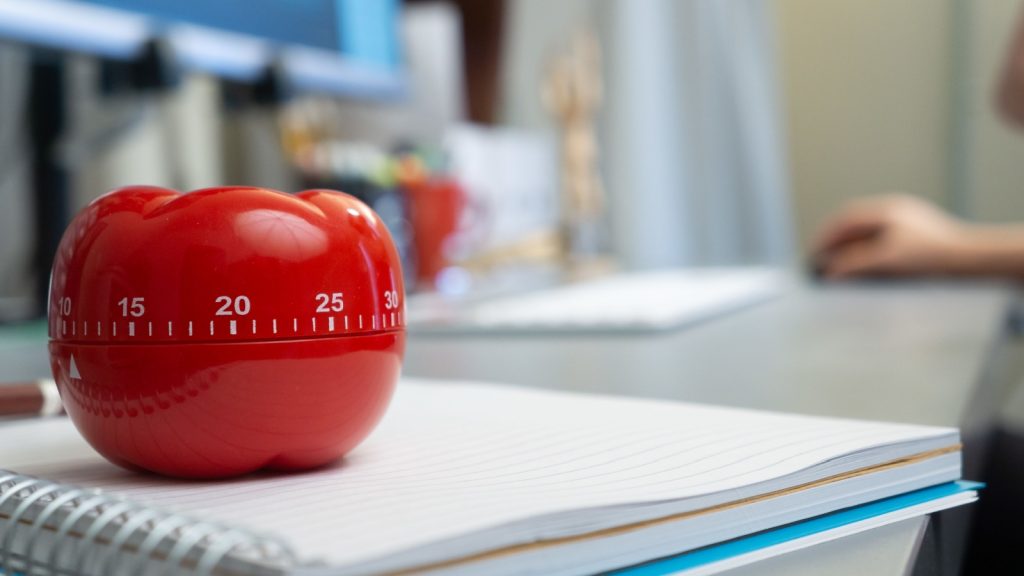In our fast-paced world, maintaining focus throughout the day can feel like an uphill battle. With constant distractions vying for our attention, it’s no wonder many of us struggle to stay on task. But what if I told you that by implementing a few simple habits, you could dramatically improve your ability to concentrate? These daily habits have helped me transform from a scattered multitasker into a productivity powerhouse. Whether you’re a busy professional, a student, or just someone looking to get more out of your day, these habits will help you sharpen your focus and accomplish more than you ever thought possible.
Start Your Day with a Glass of Water

Kick off your morning by rehydrating your body. After a night’s sleep, we often wake up slightly dehydrated, which can impact our focus and energy levels. Drinking a large glass of water first thing helps jumpstart your metabolism and clears brain fog. Keep a water bottle by your bed to make this habit effortless. For an extra boost, try adding a slice of lemon to your water – the scent can increase alertness and the vitamin C supports brain function.
Practice Mindful Breathing

Take a few minutes each morning for deep, mindful breathing. This simple practice can help calm your mind, reduce stress, and improve concentration. Try the 4-7-8 technique: inhale for 4 seconds, hold for 7, and exhale for 8. Repeat this cycle 4 times to set a focused tone for your day. If you find your mind wandering during the day, return to this breathing exercise to quickly regain your focus.
Write Down Your Top Three Priorities

Before diving into your day, jot down your three most important tasks. This helps you focus on what truly matters and prevents you from getting sidetracked by less critical activities. Keep this list visible throughout the day as a constant reminder of your priorities. At the end of the day, review your list and carry over any unfinished tasks to tomorrow’s list, ensuring nothing important slips through the cracks.
Eat a Protein-Rich Breakfast

Fuel your brain with a protein-packed breakfast. Proteins provide the building blocks for neurotransmitters, which are crucial for maintaining focus and alertness. Try options like eggs, Greek yogurt, or a smoothie with added protein powder. Avoid sugary cereals that can lead to a mid-morning energy crash. Include some complex carbohydrates like whole grain toast or oatmeal to provide a steady release of energy throughout the morning.
Take a Cold Shower

Start your day with a quick blast of cold water in the shower. This invigorating practice increases alertness, improves circulation, and boosts your mood. Begin with just 30 seconds of cold water at the end of your regular shower and gradually increase the duration as you get used to it. The shock of cold water triggers deep breathing, which increases oxygen intake and helps you feel more awake and focused.
Practice the Two-Minute Rule

If a task will take less than two minutes to complete, do it immediately. This prevents small tasks from piling up and becoming overwhelming later. It’s amazing how many little jobs you can tick off your list with this simple rule, leaving you free to focus on bigger projects. Keep a notepad handy to jot down quick tasks as they come to mind, ensuring you don’t forget them.
Use the Pomodoro Technique

Work in focused 25-minute bursts, followed by short 5-minute breaks. This method helps maintain concentration and prevents burnout. Use a timer to keep track of your work and break periods. After completing four “Pomodoros,” take a longer 15-30 minute break. During your breaks, try to step away from your workspace and do something completely unrelated to work to give your brain a proper rest.
Declutter Your Workspace

Take a few minutes each morning to tidy your workspace. A clutter-free environment helps reduce distractions and allows you to focus on the task at hand. Make it a habit to put things back in their place after use. A tidy space leads to a tidy mind. Consider adopting the “one in, one out” rule: for every new item you bring into your workspace, remove one item to maintain balance.
Practice Single-Tasking

Focus on one task at a time instead of trying to juggle multiple activities. Multitasking can reduce productivity by up to 40%. When working on a task, close unnecessary browser tabs and put your phone out of sight. Give your full attention to one thing at a time. If you find yourself tempted to switch tasks, write down the new idea or task that’s distracting you and return to it later.
Take Regular Movement Breaks

Set a timer to remind yourself to move every hour. Do some stretches, walk up and down the stairs, or do a few jumping jacks. Regular movement boosts your energy, improves focus, and helps prevent the negative health effects of prolonged sitting. Even a 2-minute movement break can make a big difference. Try incorporating a ‘walk and talk’ meeting into your day – take phone calls while walking to combine movement with productivity.
Use the “Eat the Frog” Technique

Tackle your most challenging or important task first thing in the morning. This technique, inspired by Mark Twain, ensures you complete crucial work when your energy and focus are at their peak. It also gives you a sense of accomplishment that carries through the rest of your day. Identify your ‘frog’ the night before so you can start working on it immediately in the morning without wasting time deciding what to do.
Practice Mindful Eating

Take time to eat your meals without distractions. Put away your phone and turn off the telly. Focus on the flavours, textures, and aromas of your food. This mindful practice can help improve your overall ability to concentrate and be present in other areas of your life. Try to chew each bite at least 20 times – this not only aids digestion but also forces you to slow down and be more mindful.
Use the 20-20-20 Rule for Eye Strain

Every 20 minutes, take a 20-second break to look at something 20 feet away. This helps reduce eye strain from staring at screens all day, which can lead to fatigue and decreased focus. Set a reminder on your phone or computer to prompt you to follow this rule. During these breaks, try to focus on something green or natural – studies show that looking at nature, even briefly, can improve concentration.
Keep a Distraction Log

When you find your mind wandering, jot down what distracted you. This helps you identify patterns in your distractions and find ways to minimise them. Review your log at the end of each week and brainstorm solutions for your most common distractions. For digital distractions, consider using website blockers or app limits to curb your access to time-wasting sites or apps during work hours.
Practice Active Listening

When in conversations, focus on truly listening rather than just waiting for your turn to speak. This habit improves your overall ability to concentrate and absorb information. Practice summarising what the other person has said before responding to ensure you’ve fully understood. Try to notice non-verbal cues as well – body language and tone of voice can provide additional context and help you stay engaged in the conversation.
Use the “5 More” Rule

When you feel like giving up on a task, push yourself to do just five more. This could be five more minutes of work, five more pages of reading, or five more math problems. Often, this small push is enough to help you regain focus and complete the task. Keep a visual tracker of your ‘5 more’ moments to see how often this technique helps you push through difficult tasks.
Create a “Done” List

At the end of each day, write down everything you’ve accomplished. This practice helps you recognise your progress and boosts motivation. It’s easy to focus on what’s left undone, but acknowledging your achievements can improve your mood and increase productivity the next day. Include small wins as well as big accomplishments – every step forward counts.
Practice Gratitude

Take a few minutes each evening to write down three things you’re grateful for. This simple habit can improve your mood, reduce stress, and help you maintain a positive focus. Try to be specific and vary your entries each day to keep the practice meaningful. Share your gratitude with others when appropriate – expressing thanks can strengthen relationships and further boost your mood.
Use the “Ivy Lee Method”

At the end of each workday, write down the six most important tasks for tomorrow. Prioritise these tasks and work through them in order the next day. This simple method helps you hit the ground running each morning and ensures you’re always working on high-priority items. Resist the urge to add more than six tasks – this limitation forces you to focus on what’s truly important.
Implement a “No Screens” Hour Before Bed

Avoid screens for at least an hour before bedtime. The blue light emitted by devices can disrupt your sleep patterns, making it harder to focus the next day. Use this time to read a book, practice relaxation techniques, or engage in a calming hobby. If you must use a device, enable the blue light filter or wear blue light blocking glasses to minimise the impact on your sleep.
Practice Progressive Muscle Relaxation

Before bed, try progressive muscle relaxation. Start at your toes and work your way up, tensing and then relaxing each muscle group. This practice can help reduce stress and improve sleep quality, leading to better focus the next day. Combine this with deep breathing for an even more powerful relaxation effect.
Use Aromatherapy

Incorporate focus-enhancing scents into your daily routine. Essential oils like peppermint, lemon, and rosemary can improve concentration and mental clarity. Use a diffuser in your workspace or apply diluted oils to your wrists or temples. Experiment with different scents to find what works best for you – some people find lavender calming while others find it makes them sleepy.
Keep a Consistent Sleep Schedule

Go to bed and wake up at the same time every day, even on weekends. A consistent sleep schedule helps regulate your body’s internal clock, leading to better quality sleep and improved daytime focus. Aim for 7-9 hours of sleep each night. Create a relaxing bedtime routine to signal to your body that it’s time to wind down – this could include gentle stretching, reading, or listening to calming music.
Start a Meditation Practice

Begin your day with a short meditation session. Even just 5-10 minutes of meditation can improve focus, reduce stress, and increase mindfulness. Use a guided meditation app if you’re new to the practice. Consistency is key, so try to meditate at the same time each day. If you find it difficult to sit still, try a walking meditation or mindful movement practice like tai chi or yoga.
Katy Willis is a writer, master herbalist, master gardener, and certified canine nutritionist who has been writing since 2002. She’s finds joy in learning new and interesting things, and finds history, science, and nature endlessly fascinating.

